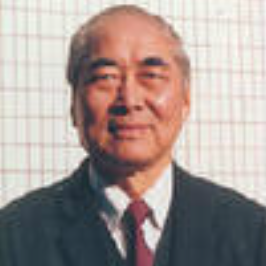Xiang Zuying

Xiang Zuying, male, famous erhu performer and music educator. Born in Suzhou, his father Xiang Yinshi - a senior in folk music, once founded the "Wu Ping Chinese Orchestra".
Xiang Zuying learned the piano from his father since he was a child, and played it at the age of 10. Later, he learned from famous teachers such as Zhang Jirang, Lu Xiutang and Jiang Fengzhi.
Xiang Zuying graduated from Soochow University in 1949. In 1956, he was employed by the Shanghai Chinese Orchestra as the band leader and a member of the art committee. At the same time, he is a professor of the Ethnic Music Department of Shanghai Conservatory of Music. Enjoy special government allowances approved by the State Council.
Xiang Zuying's performance art is profound, giving people a sense of simplicity and vitality, and then giving people depth and charm. Going to another level, through the vigor of his qin sound, you can feel a kind of charm, from the depth of the qin sound, you can see through it. In a state, in his bow and sound, there always seems to be something indescribable, from the heart to the sound of the piano, connected by breath, often with words and endless meanings. The traditional music he plays is simple and elegant, with vivid seven rhymes; when he plays modern creations, he can reflect the style of the times with skillful skills and is full of national style. He made a special trip to Beijing three times to perform "Erquan Reflecting the Moon" for Mao Zedong. He has also visited and performed in Romania, Hungary, Germany, Poland, the Czech Republic, the Soviet Union and other countries, enjoying a high reputation.
Xiang Zuying later studied with great concentration on the excellent works of Chinese folk musicians Liu Tianhua, A Bing and others. Bring A Bing's famous classics "Erquan Reflecting the Moon" and "Listening to the Pine" on the stage.
For decades, as an outstanding music educator, Xiang Zuying has cultivated many outstanding erhu performers.
Xiang Zuying has a wide range of performances. He also edited "How to Play Erhu Well", "The Collection of Erhu Songs by Sun Wenming" and "Sixteen Lectures on Erhu Textbooks". He recorded "Xiang Zuying Erhu Solo Album", where ten masterpieces he played in various periods were gathered here.
His representative solo works include: "Erquan Reflecting the Moon", "Elegy", "Flowing Wave", "Autumn Moon in the Han Palace", "The Village Has Changed", "Bangzi Wind" and so on.
Similar artist
Involving musical instruments
Involved portfolio
Involved news
Popular artists
- 01 Zhang Xiuyan
- 02 Chen Tao
- 03 Li Muliang
- 04 Zhu Changyao
- 05 Zhang Gaoxiang
 渝公网安备 50010702504639号
渝公网安备 50010702504639号